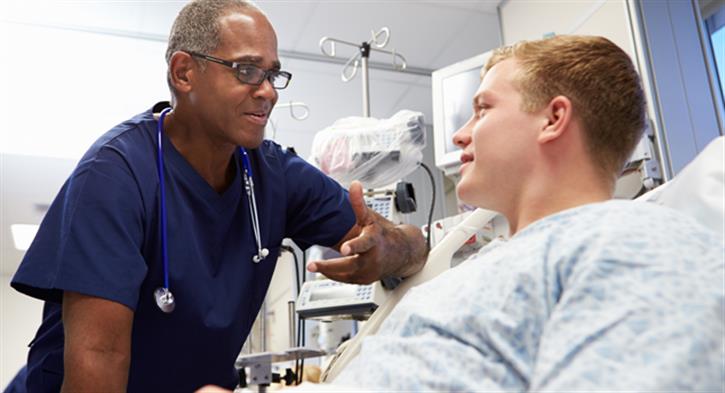

The Gas Safety Trust (GST) is funding research that will seek to understand the number of patients presenting to emergency departments (EDs) with raised carboxyhaemoglobin (COHb) levels that could be caused by carbon monoxide (CO) exposure in the home or at work.
Dubbed the ‘silent killer’ CO is tasteless, colourless, odourless and undetectable and reported to cause around 40 deaths, 200 admissions and 4000 presentations to EDs each year in the UK. However the true prevalence of CO poisoning is not known, as CO exposure is not always considered by healthcare professionals.
The GST is concerned that through misdiagnosis, patients can continue to be exposed to CO, where they may go onto suffer long term injury or even death.
The research, which will be carried out by Dr. Simon Clarke, consultant emergency physician at Frimley Park Hospital, Surrey, aims to reduce this misdiagnosis so that patients are treated appropriately and not sent back to the site of exposure before it is safe to do so.
As part of the research, all patients presenting at the hospital ED with specific symptoms such as chest pain, headache or seizures, will complete a health questionnaire. For those patients with raised COHb levels whose answers reflect possible CO poisoning, a registered gas engineer will be sent to investigate the scene of the suspected exposure.
It is hoped the research and its findings will go some way to establishing a more accurate estimate of the prevalence of CO poisoning in the UK, resulting in correct diagnosis and treatment for sufferers.
This research follows on from a 2011 study by Dr. Clarke measuring raised COHb levels in certain patients that presented to four emergency departments in England.
Chris Bielby, GST chairman said: "The Gas Safety Trust is delighted to announce this grant award for the follow up to Dr Clarke’s 2011 study. It is a long standing concern of the Trust that, due to the similarity of symptoms, people are being misdiagnosed and sent home, and that healthcare professionals do not always ask the right questions.”
“We hope that this study will give us some understanding of the scale of the problem and bring some pressure to bear on policy makers to take action on this important and under-recognised issue.”
Dr. Clarke said: “This is a very important project. It will help us to understand the prevalence of environmental carbon monoxide poisoning and provide the information required by medical and healthcare professionals that will assist with diagnosing of carbon monoxide poisoning and recognising the health effects associated with it, even from relatively low levels of exposure.”
If you'd like to keep up-to-date with the latest developments in the heating and plumbing industry, why not subscribe to our weekly newsletters? Just click the button below and you can ensure all the latest industry news and new product information lands in your inbox every week.